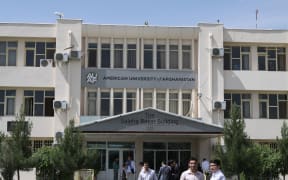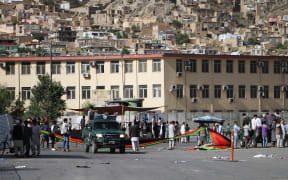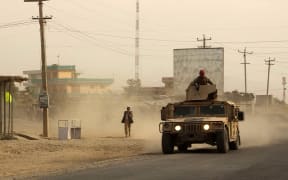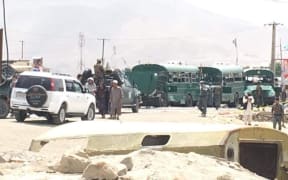After 11 hours, Afghan security forces have shot dead the last attackers who struck after a suicide bombing in central Kabul.
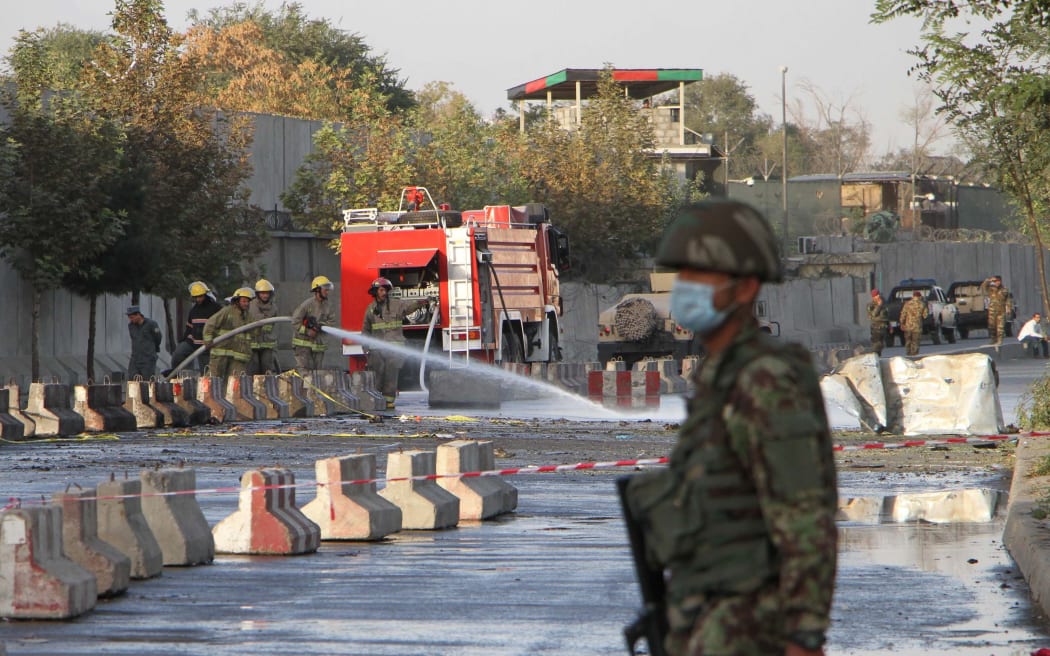
Afghan security forces stand by as the area where two blasts killed at least 24 people in Kabul is cleared. Photo: AFP
The double bombing shook Afghan capital Kabul, killing 35 people and injuring more than 100 near the defence ministry in the early hours on Tuesday.
The twin blasts in quick succession tore through an afternoon crowd in a bustling area close to the defence ministry.
The first explosion was followed by a second in which a suicide bomber caught security forces and civilians who had rushed to help victims.
The ministry said an army general and two senior police commanders were among the dead.
Another official said the deputy head of President Ashraf Ghani's personal protection force had also been killed.
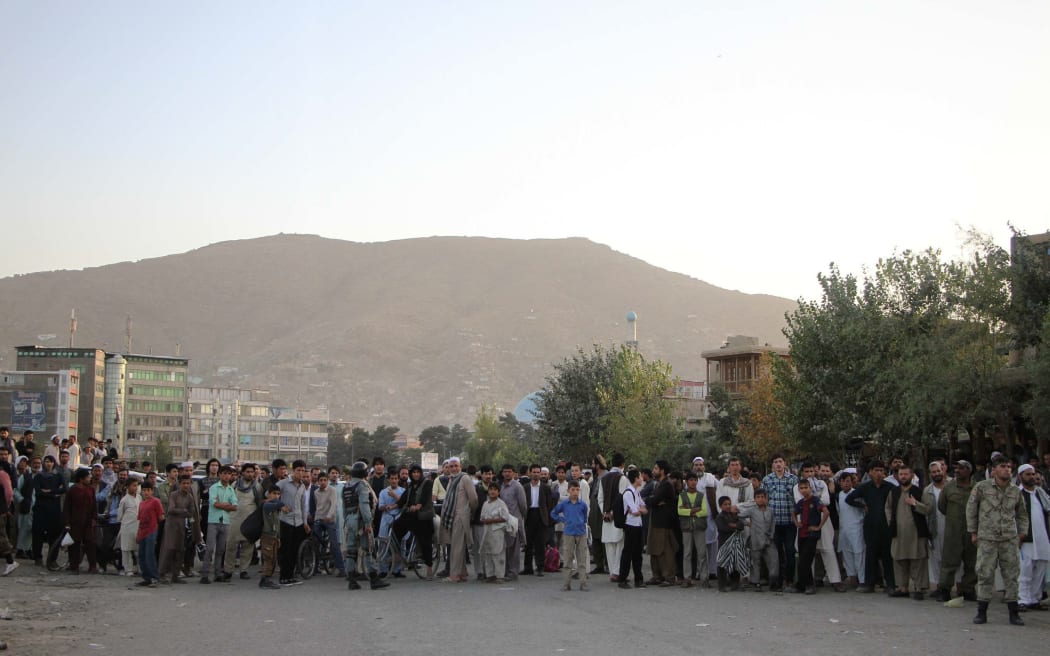
Afghan people are seen at the area after twin suicide blasts. Photo: AFP
That attack was claimed by the Taliban and was followed a few hours later by a car bomb in Share Naw, a business and residential area of the city close to the government and embassy district.
After the blast in Share Naw, three gunmen barricaded themselves in close to an office of aid group Care International and a government complex. The target of the attack was not clear.
There was no immediate claim of responsibility for the Share Naw attack, which caused only six injuries. Care International said in a statement its staff in Kabul were safely evacuated.
"When the explosion happened, all of our windows broke and for a minute I thought that the house had collapsed on us," said Togrul Big who lives near the Care International compound and suffered a hand injury in the car-bomb blast.
Mid-morning on Tuesday, after hours of standoff interrupted occasionally by sporadic gunfire, Interior Ministry spokesman Sediq Sediqqi said Afghan special forces had killed all those involved in the attack.
Just a month before a conference in Brussels where international donors were expected to pledge continued financial support to Afghanistan, the attacks highlighted the precarious security climate in the capital.
"When the first explosion happened people crowded to the site and then the second blast occurred, which was really powerful and killed lots of people," said Samiullah Safi, who witnessed the attack.
The double bombing came less than two weeks after gunmen attacked the American University in Kabul, killing 13 people.
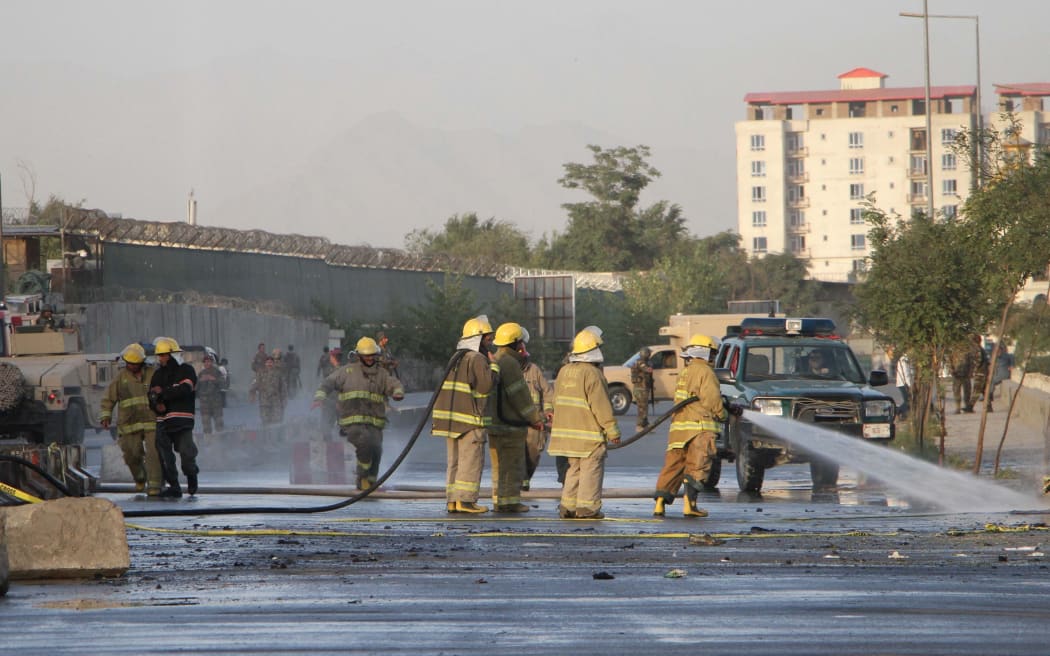
Firefighters clear debris after the attack at the defence ministry. Photo: AFP
It was the deadliest attack in Kabul since at least 80 people were killed by a suicide bomber who targeted a demonstration on July 23. That assault was claimed by Islamic State.
The Taliban's ability to conduct coordinated high profile attacks in the capital Kabul has piled pressure on the Western-backed government, which has struggled to reassure a war-weary population that it can guarantee security.
Afghanistan's foreign partners, concerned about the ability of the security forces to withstand Taliban violence, are expected to pledge support over coming years at the Brussels conference, three months after NATO members reaffirmed their commitment at a meeting in Warsaw.
Outside Kabul, the insurgents have stepped up their military campaign, threatening Laskkar Gah, capital of the strategic southern province of Helmand as well as Kunduz, the northern city they briefly took last year.
- Reuters
